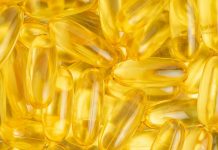
Stress and anxiety can make us feel really bad. They are problems faced by many people all over the world.
But, did you know food can help us handle stress and anxiety better? Yes, what we eat can change how we feel.
Science-Backed Foods That Lower Stress and Anxiety
Omega-3 Fatty Acids: Fish, Walnuts, and Flaxseeds
Omega-3 fatty acids are good for our brain. They help our brain work better and they can lower stress and anxiety.
A study in 2011 found people who ate a lot of omega-3s had less anxiety. Some foods high in omega-3s are fish like salmon, walnuts, and flaxseeds.
Vitamin B: Whole Grains, Meat, Eggs, and Leafy Greens
Vitamin B helps our body handle stress. It can make us feel more relaxed. A 2017 review found that people with lots of B vitamins were less likely to be depressed. Foods like whole grains, meat, eggs, and leafy greens are full of B vitamins.
Probiotics: Yogurt, Kefir, Sauerkraut
Probiotics are good bacteria. They are great for our gut health. In 2020, a study showed probiotics can help us feel less anxious. You can find probiotics in foods like yogurt, kefir, and sauerkraut.
Antioxidants: Berries, Nuts, Dark Chocolate
Antioxidants are substances that can protect our body from damage. They can also lower stress and anxiety.
A 2014 research study found antioxidants helped people feel calmer. Foods like berries, nuts, and dark chocolate are packed with antioxidants.
Diet and Stress: How They Are Connected
Food and mood are connected. What we eat can change how we feel. When we eat healthy foods, we feel better. When we eat unhealthy foods, we can feel worse.
Stress and anxiety can make us want to eat unhealthy food. This is called stress eating. It can make us feel good for a little bit, but it can make our stress and anxiety worse over time. Eating healthy food can help us handle stress better.
Making Food Choices To Lower Stress
Changing what we eat can be hard. But, it can make a big difference for stress and anxiety. Here are some simple tips:
Eat regularly: When we’re hungry, we can feel more anxious. Regular meals can help keep our mood steady.
Choose whole foods: Foods like fruits, vegetables, nuts, and fish are better for our mood than processed foods.
Hydrate: Not drinking enough water can make us feel stressed. Try to drink enough each day.
Limit caffeine: Too much caffeine can make us feel anxious. Try to limit coffee and energy drinks.
What we eat can help us handle stress and anxiety. Foods rich in omega-3s, B vitamins, probiotics, and antioxidants are great choices.
Regular meals, whole foods, hydration, and less caffeine can also make a big difference. Remember, everyone is different.
What works best might be different for different people. It can help to talk to a doctor or a nutritionist if you’re not sure what’s best for you.
Eating away stress might sound too good to be true. But, there’s good research to back it up.
It’s one more tool we can use to feel better and handle stress. So, next time you’re feeling stressed, remember, you might just need a good meal.
If you care about nutrition, please read studies about the harm of vitamin D deficiency you need to know, and does eating potatoes increase your blood pressure.
For more information about health, please see recent studies about unhealthy habits that may increase high blood pressure risk, and results showing MIND diet may reduce the risk of vision loss disease.
Copyright © 2023 Scientific Diet. All rights reserved.








